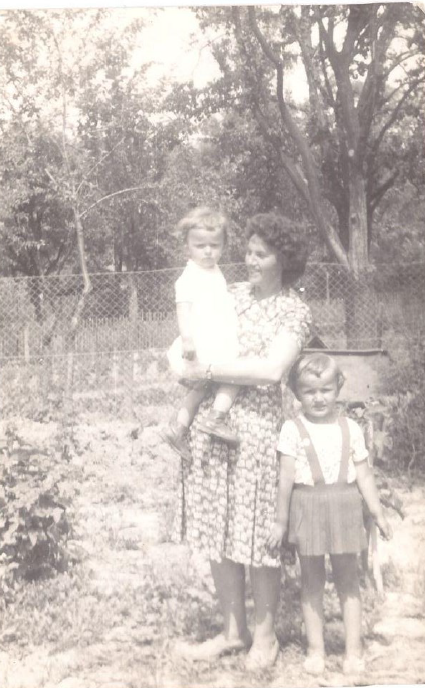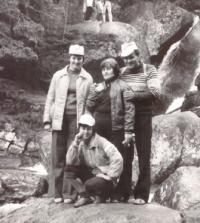The end of the war did not bring us much joy

Download image
Štefánia Chmelarová was born on May 10, 1939 in Nová Bystrice, Slovakia. Her first intense memories date back to the end of World War II, when the area around Bystrice was often bombed and the front passed through several times. In the winter of 1944, the Russians set up headquarters in their house and left after Easter. When she was six years old, her mother died. Dad worked as a carpenter and was on construction sites all week, so she was brought up by her fifteen years older sister. She moved with her to Bernartice near Javorník in 1949. She remembers the many Greek refugees who fled the civil war and were often placed in the border region. After elementary school, she began to work as a saleswoman in a local shop, but she was unable to attend school in Sobotín in the Šumperk district due to lack of funds. She soon married and moved with her husband to Slovakia, to the village of Velušovce near Topolčany, where they lived for fourteen years and had three daughters. When Warsaw Pact troops invaded Slovakia in August 1968, the witness thought there was going to be a war. In the early 1970s, she and her husband moved to Tuklaty near Český Brod. She started working in the computer branch of the Ministry of Transport, where she worked at large computers for eighteen years. As a staunch opponent of communism, she was delighted by the fall of the regime in November 1989, but she followed the demonstrations and company strikes only from afar. She retired in 1993, but for the next five years she worked in the mail sorting plant at Masaryk station and later in Malešice. She took advantage of the open borders to travel with her grandchildren to Europe every year. Štefánia Chmelarová died in April 2023.



